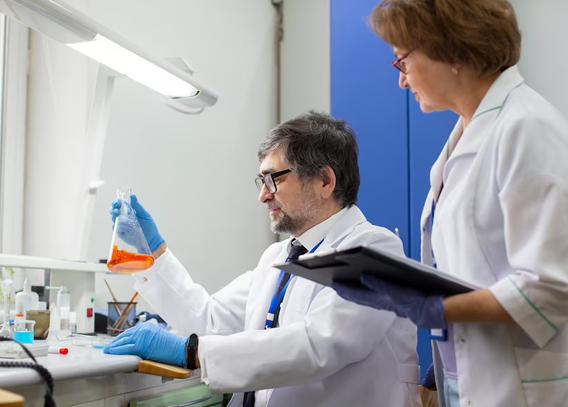
Do your employees have to read boring laboratory procedures?
Are your laboratory manuals in hardcopy or PDF formats?
Are your safety programs losing its effectiveness?

Hardcopy and static laboratory procedures, which involve using physical documents and fixed processes, can introduce various issues in laboratory settings, including:
1. Lack of Accessibility: Hardcopy procedures restrict accessibility to the laboratory protocols, making it challenging for multiple team members to access, review, or follow procedures simultaneously.
2. Version Control: Maintaining up-to-date versions of hardcopy laboratory procedures can be cumbersome, increasing the risk of using outdated or incorrect protocols.
3. Document Storage: Storing and organizing physical documents can lead to clutter and the misplacement of critical procedures, consuming valuable laboratory space.
4. Limited Collaboration: Collaborating on experiments and sharing insights is less efficient with static documents, potentially hindering innovation and knowledge sharing.
5. Time-Consuming Updates: Revising hardcopy laboratory procedures can be time-consuming and can lead to delays in implementing improvements or changes to protocols.
6. Difficulty in Retrieval: Finding specific information or procedures within printed documents can be time-consuming and prone to errors.
7. Data Integration: Integrating laboratory results and data into static procedures can be challenging, potentially resulting in data discrepancies or inconsistencies.
8. Training and Onboarding: Training new staff on laboratory procedures is less efficient when relying solely on hardcopy materials, potentially increasing the learning curve.
9. Compliance and Auditing: Ensuring compliance with regulations and conducting audits may be more challenging when working with paper-based laboratory procedures.
10. Environmental Impact: The use of hardcopy documents in laboratories can lead to substantial paper waste, printing costs, and contribute to environmental concerns.
11. Data Security: Printed laboratory procedures may be less secure, with the risk of unauthorized access or loss of sensitive experimental data.

KnowledgeTransferPros helps laboratories transition to electronic laboratory notebooks (ELNs) and digital documentation systems. These systems offer benefits such as improved accessibility, real-time updates, enhanced data integration, collaboration tools, and the ability to track changes and revisions efficiently. ELNs also help reduce the environmental impact by eliminating the need for extensive paper documentation.